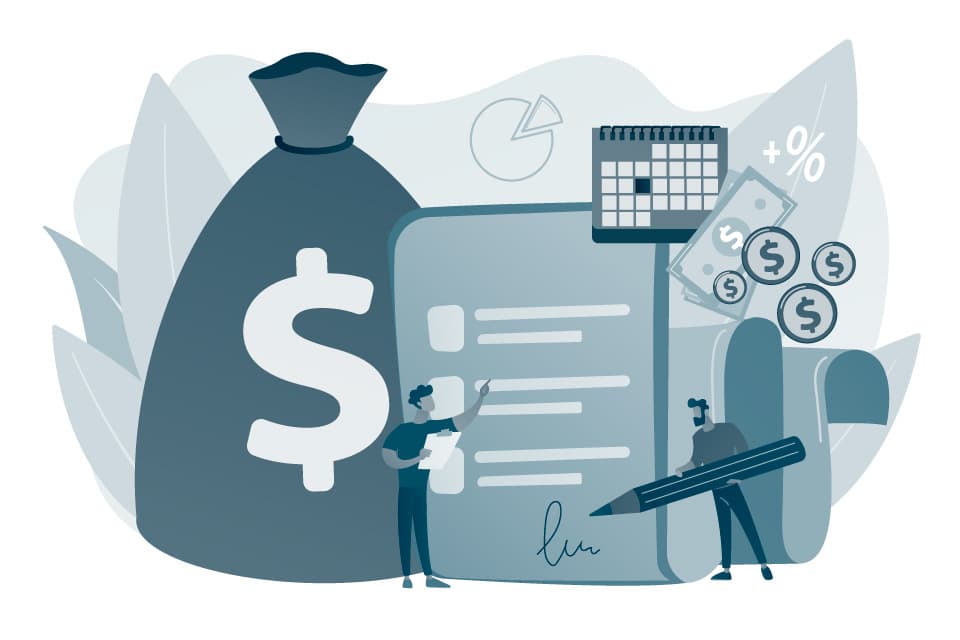The biggest problem most budding entrepreneurs face when starting out is acquiring the funding to get their business idea off the ground. A survey from FreeAgent recently found that 61% of UK residents would like to start their own business, but 51% of them cited ‘the financial burden of setting up’ as their number one concern. In this article, we will walk you through the process of funding your venture and signpost to useful resources along the way. Planning is key when it comes to raising money; you must have an in-depth understanding of your business’ financials, solid projections drawn up and a clear plan for the future in place.
61% of UK residents would like to start their own business, but 51% of them cited ‘the financial burden of setting up
Draw up a Budget
When starting out, it is essential that you draw up a business budget as evidence to support your finance applications and to enable you to answer important questions from banks, lenders or investors. If you start small, you’ll be able to scale these budgets with your projected growth. Huw Moxon from Informi has shared his top tips and real-world examples to help you create your first business budget–read more here.
Decide How Much You Need
Drawing up a budget will enable you to see how much you actually need. A common mistake early-stage business owners often make is asking for too much money. Be realistic with growth plans and forecasts so that when you’re quizzed, you can back up your figures. As part of this plan, there may be different stages of funding that you will go through. This round may be to acquire premises, purchase machinery or get your branding designed. As you grow, there will be different needs, so be clear about what is essential now and what can be slotted in further down the line. Once you’ve come to a figure you feel confident about, it’s good to get some feedback from another business owner or mentor. Alternatively, search out your local growth hub; they can be a useful centralised information point and offer valuable resources, advice or signposting.
Short-Term Borrowing
After putting your plan in place, you may identify that you only require funding in the short-term. Generally, short-term lending means the money will be repaid within 12 months and is considered cash flow management rather than a financial investment.
Invoice Financing –
This is a great way to quickly free up cash on outstanding invoices owed to the business. As a smaller venture, you may have longer terms of payment on your invoices, leading to periods of poor cash flow. Invoice financing has become more flexible in recent years, with companies like Penny revolutionising the industry.
A Short-Term Personal Loan –
If the business hasn’t been operating long and you just need a small injection of cash to get you up and running, this is a good option. Ensure you have thought it through and can afford the repayments however things pan out. Your first port of call should be your bank. If you don’t have any luck there, we would advise consulting your local growth hub for alternatives.

Long-term Borrowing
If you decide a larger amount of money is needed, it’s important to do your research before signing on the dotted line. It is worth ensuring the company structure is in place to protect you, or that you have a backup plan if everything doesn’t proceed as predicted.
Bank finance –
the traditional route for many businesses. You can apply for a business loan with any high street bank. They will request documentation and forecasts from you and may require guarantees.
Alternative debt finance –
if you are turned down for a loan from your bank, there are other responsible lending agents out there. The application process is similar, but the interest rates may be slightly higher than a bank-backed business loan.
Start-up loans –
are government-backed loans where the borrower/s can each borrow up to £25,000 to a maximum of £100,000 for any one business. Critically, these loans are personal loans, and repayments will be made by the individual, not the business.
Investors –
this is referred to as equity capital and will require you to relinquish a portion of ownership. This could be a great way forward but can become complicated; more on this later.
Crowdfunding –
this is a fantastic way to raise capital that you don’t necessarily need to pay back in ‘money’. It is particularly effective for product-based ventures with a strong brand identity that people can get behind.f
Start-up loans are government-backed loans where the borrower/s can each borrow up to £25,000 to a maximum of £100,000 for any one business
What should I have prepared before seeking finance?
Each institution and application will be different, but there are a few key documents you should have together to make the process run as smoothly as possible. If you are at a very early stage, you may not have all of these documents, but you will still need an understanding of what they are, along with predicted figures based on evidence and analysis. These documents include:
- Annual Statutory Accounts
- Management Accounts
- Profit and Loss Account
- Balance Sheet
- Cash Flow Forecast
- Personal Assets & Liabilities Statement
It is also wise to grasp the abbreviations used within the business finance world. We have explained some of the most common ones here.
Ways to Finance Your New Business
We’ve briefly outlined some of how you can raise capital for your new venture. In this section, we’ll look more into your options so you can decide which is best for you.

Personal Investment
Investing your own money is the simplest way to set up your business. Save up and don’t put in more than you can afford to lose.
Friends and Family
If you do require a little extra help, friends and family can provide a resource of finance. As you can imagine, this one can get complicated. We would always advise having a written contract in place, so everyone is on the same page. This document should also outline what will happen if things don’t go according to plan. It’s not being pessimistic, it’s being practical.
External Investors
Investors come in all shapes and sizes, and you need to be clear on their motivations before agreeing to take their money. For example, angel investors are interested in exciting start-ups that they can contribute to, venture capital firms will be looking for strong growth potential, and private equity firms will want a controlling stake in your business. All will want to see a return on their investment, but what they can bring to the table massively varies. Your decision should be based on what you feel the business needs from them and the outcome you want. Is the business a lifestyle for you, or is the goal to be ‘private-island’ rich within 10 years?
Business Loans
If you are just setting up your business and have no trading history, it may be difficult for you to obtain finance from a bank. Similarly, alternative lending organisations will still want to see some sort of financial records and usually only deal with companies that have at least 12 months of accounts to show. As previously mentioned, you can take out a Start-Up Loan. However, you are personally responsible for repayments even if the company folds.
Business Grants
There are many different business grants available from the government. Focuses include the promotion of diversity within the entrepreneurial community, job providers in deprived areas and technology-based businesses. They do come with strings attached though. Most will require you to have been trading for a period of time and require lengthy application processes. They may also only part-fund projects or have strict qualification criteria. If you want to find out more about schemes available in your area, contact your local growth hub, and they will be able to advise.
Product-based businesses with a good social media following usually do well on crowdfunding websites
Crowdfunding
There are many platforms where businesses can now ask for donations to help them fund their business. As mentioned, product-based businesses with a good social media following usually do well on crowdfunding websites. You will need to give a token back to everyone that donates, which will usually increase in value the more they put in. You will have to pitch and provide information about the business to be accepted onto a crowdfunding website, and if the target you set is not met, you will have to return all of the money.
Asset Funding
This type of finance requires the business to have assets on the balance sheet that can be used to raise capital. These assets can include stock, machinery, equipment or outstanding invoices. You are more likely to get this loan quickly as the lender has collateral they can repossess if you default on the loan, however valuations can be lower than if you sold assets yourself.
Conclusion
When starting a business, the feeling of overwhelm is very real. It all comes back to having a well-informed plan. Using data analysis, forecasting and carefully considering what outcomes you want will lead you to the correct source of funding. Continue to test and assess whilst in the early days to figure out what works in the real world. If you’re unsure what the best option is for you, our financial experts are on hand to guide you through the process. To find out more about our free, no-obligation ‘Access to Finance’ consultations, click here.
Summary
The first step when starting out is to draw up a budget. It will help you decide how much you need, so you ask for the right amount and maximise your chances of getting it.
Short-term borrowing is an option worth considering if your funding needs do not need much time. This can include invoice financing or short-term personal loans.
Long-term borrowing is useful if you need a larger amount of money. This can include bank financing, alternative debt financing, start-up loans, investments, and crowdfunding.
Before you seek financing, it is important to be prepared, and this includes having the right documents, like Annual Statutory Accounts, Management Accounts, Profit and Loss Account, Balance Sheet, Cash Flow Forecast, and Personal Assets & Liabilities Statement.
Ways of financing your business can range from personal investment, money from friends and family, external investors, business loans, business grants, crowdfunding and asset funding.






